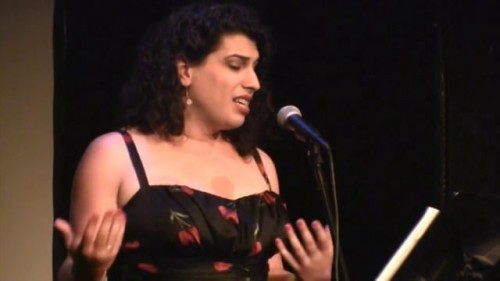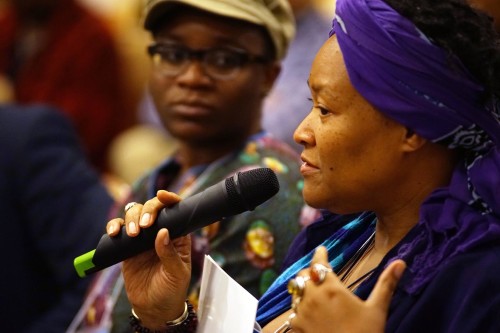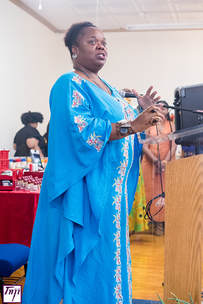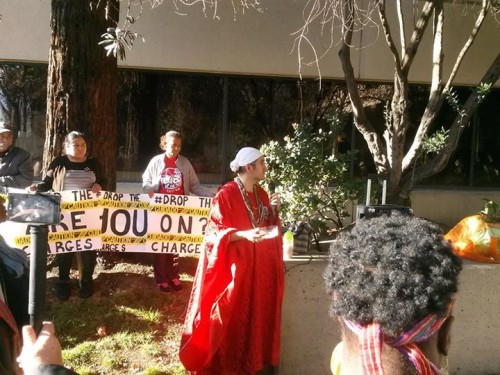Pagan Perspectives
There is something about a list in this culture: lists for best movies, most popular songs, best quotes of the year, best places to visit, most memorable books of the year. These are just a few of the many lists that are created in today’s culture every year. It is no wonder that the creation of lists are something that has also become a “thing” within the over-culture of Paganism as well.
While we normally see the publication of these lists at the end of the calendar year, 2018 brought us a list early, starting conversations before the shifting of seasons begins.
Everyone has been talking about the most recent list published on the Patheos Pagan blog Raise the Horns. This list of the 25 most influential living Pagans was Jason Mankey’s personal reflection of people he identifies as inspiring in the Pagan culture. We have seen different Pagan writers do similar lists within Pagandom, and this one gathered a bit of buzz on the internet and follow up responses. The comments on his blog are full of individuals responding with people they feel were missed, with some commenters outlining their own lists. (Jaime Gironés published his own list of the 15 most influential Pagans in Mexico in The Wild Hunt last week.)
The Wild Hunt published one of the first versions of such lists in a 2004 post; it has since become a type of cultural snapshot that is often used to solidify the “who’s who” of the Pagan community.
Over the years of watching the publications of similar lists, it has become apparent that the celebrity culture of our community continues to thrive, which often leaves the margins of Paganism to be ignored or overlooked. Like in larger over-culture, what gets the most attention is usually what appeals to the larger populations and not to the fringes. With a few exceptions, this is the category that people of color fall into within a largely Eurocentric culture.
While this mirrors the construct of larger society, it means that we just might miss some of the amazing talents and gifts of others on this journey. One of the ways that we can shift this popular paradigm within our community is to create spaces to celebrate the voices within the margins and to engage in conversations about the variety of talents within our interconnected communities.
One of the enlightening phenomena of list-creating is the amazing impact it has on the those that read them: it can provoke people to think about their own influences, mentors, and experiences that best represent their own journeys. For all the reasons that people want representation, these lists evoke all kinds of feelings within the people that read them. It is not uncommon for individuals to be upset, angry, excited, inspired, frustrated, or even embarrassed by lists that do not reflect the many different areas of Paganism that they feel are important.
This most recent list has not been any different than those created in the past. Social media comments exploded when Mankey’s latest list was published. Mankey invited his audience to contribute to his personal list, and some people felt there were some necessary contributions to be made.
Questions that surface whenever such lists are published usually go something like this: where are the people of color? The young leaders? The African Traditional Religions? Those who aren’t so-called “big-name Pagans?” Where are the activists?
As a contribution to this evolving conversation, I would like to explore some of the immensely talented people of color that have added a lot of influential magic to our greater community. This list will not give a resume of each person, but hopes to hit some points of how they have continued to be an inspiration to our interconnected Pagan and Polytheistic paths.
Some are unknown in the larger Pagan community: many are not published, and some prefer to be behind the scenes. In picking names to add to this list, being “known” was not a primary factor at all. Being powerful, influential, and within the margins of this community were some of the primary elements that put them here.
Elena Rose

Elena Rose [still from Girl Talk video].
The Trans Lifeline website cites Elena as having “an M.Div. from the Graduate Theological Union, focused on social justice and community care work, and [she] was ordained as a minister by the Church for the Fellowship of All Peoples, a historic interfaith civil-rights congregation in San Francisco.” She is a performer, writer and lecturer. Some of her most profound work has been her study and writing related to the role of the monsters in society and how that impacts the most vulnerable in our communities. Her lectures on this at PantheaCon have been pure brilliance.
Elizabeth “Big Liz” Ruth
Haitian Vodou priestess, Witch, rootworker, diviner, teacher, healer and outstanding shop owner, “Big Liz” continues to be an inspiring woman in the Pagan scene. Not only is she a no-nonsense practitioner, she is also down to earth and about her business. From providing 101 Hoodoo classes to teaching intensive courses in rootwork and magic, she consistently contributes to the community in very tangible ways. She is also the public relations representative for Dawtas of the Moon, a convention for women-of-color priestesses and Witches in Baltimore, Maryland.
Here is the thing about Big Liz: she is unafraid to speak her mind and advocate for right action in the middle of chaos. As a Black woman in the Craft, she gracefully straddles the line between authentically holding many paths of worship and speaking truth to power about the needs of holding space for the intersectional paths of our skinfolk. This kind of integrity is a constant reminder of the importance of being true to oneself and to those in one’s community. (Her oils are also out-of-this-world fantastic.)
Katrina Messenger
Katrina Messenger’s website describes her as a “poet, priestess, warrior, and Witch”, and I couldn’t agree more. Katrina has an impressive resume of magical contributions and professional work; she is known as one of the most powerful practitioners and elders within many spaces. Katrina’s work within the realm of mythology, ritual and trance work have been a huge contribution to the practices of many spiritually-minded people. Her website also identifies her as “a radical feminist of African, Cherokee & Irish descent,” and “a refugee from the communist, labor, feminist, and black nationalist movements of old.” She has taught in various convention rooms all over the nation, and also in her Reflections Mystery School. What I personally will always remember of her was the sense of coming home I felt when I had the opportunity to share space with her.
Katrina has a keen ability to integrate history, ancestral knowledge, magical training, and intensive energy working to channel and control the emotional and passionate energy of justice magic like no one else I have never seen. I sat in a room with Katrina during a restorative justice circle at PantheaCon and watched her wield the highly charged energy of this Black Lives Matter circle into powerful healing magic. There are many reasons she would be on a list of influential Pagans; for me, it boils down to some of the most powerful energy channeling I have ever experienced.
Luna Pantera

Luna Pantera [Auburn Theological Seminary].
Beverley “Doctor Beverley” Smith
A “two-headed” conjure woman, empath, activist, herbalist, Druid priestess, Yogi practitioner, and all-around power house, Beverley Smith has been a part of the Pagan community for a long time. Known as the “Spiritual Gangsta” online, she embodies the power of the ancestors in presence and in voice. One of the things I find most inspirational about her is the unapologetic power she holds in her fight for those who are the most targeted in society. Whether online, on her podcast, or in the halls of any convention, she is unafraid to stand up against oppression, racism, and discrimination in any form. On the 2018 Big Apple Conjure Gala website, Beverley’s bio states “She has a soft spot for sex workers, dancers, gamblers, and all those who are discriminated against in any way.”
Jacki Chuculate
This woman’s magic is often beyond words or explanation. It is the kind of magic that taps into the root of all things necessary and pulls from every corner of the world. She isn’t just another magic worker: she has her own distinct ability to weave magic and justice work into a powerful element of magical intervention. Jacki works several angles of activism with heart and professionalism. She is a licensed clinical social worker in her day job and carries that same passion into her fight for justice in her spiritual practice.
From the front line of protests in Ferguson, Missouri, Jacki was one of the people using her magic to protect protestors in harm’s way from militarized police forces during one of the most intense times of this generation. From her frontline work as a priestess to her counseling in support of those in immediate need, Jacki embodies the understanding of what it means to use magic in every action. Her use of sacred workings at the site of Michael Brown’s death humbled me to my core and inspired me not to hide during a time that was painful and scary. As an Indigenous woman she holds a balance between her ancestral magic and her Pagan practice to aid in the highest level of healing support for others.
Mama Omi and Dawtas of the Moon Convention

Mama Omi [courtesy].
Mama Omi, receiving a message from the elders in her dreams, didn’t wait for a path to be created for her; she created a path herself.
Dianne Daniels
Current branch president of the Norwich NAACP, Dianne Daniels is using her magic in some of the most powerful ways imaginable. A Pagan, political activist, and religious scholar, Dianne is actively crushing stereotypes of Paganism within the Black community while fighting for equity and justice in a very structured way. Publicly being a face of the NAACP also does something incredible for the Pagan community: it opens up the narrow box of the roles that people play while being an ethnic minority and Pagan. This type of power in her political position directly links activism, justice, spirituality, and civil rights magic in a very public way.
Kenya Coviak
Editor-in-chief of the Pagan Business Network, blogger, and journalist, Kenya Coviak is powerful with her deeds and her words. She is the “creator behind Detroit Conjure and Folk Magic Festival,” a two-day festival centered in Michigan. Kenya is a wordsmith who uses language to create a magic that you can feel and taste. She also gets things done. She is a woman of action – willing to step forward and fill voids within the community. In a blog titled “Brown eyes like mine – thoughts about a festival about Detroit’s magic,” Kenya discusses the creation of the Detroit Conure and Folk Magic Festival. Her work describing the need to see brown eyes “like mine” resonates deeply with me, mirroring the experiences of many Pagans of color I know.
Meanwhile, the whole way home, my eyes were filled with tears. I mean, lay my face in my hands, tears. Why? Because it filled my heart so deep and hard with how much I miss seeing my people, seeing other brown faces, breathing the same air as I do as we speak of things that make the impossible happen.
It struck me like a bell. I have never been to an event in Detroit like this event will be. I thought I made this event for several reasons, but maybe it was really about reunion. A Black magical family reunion.
The city is so spread out now. The only spaces and faces that gather together that I travel are filled with good and honorable people. But there are so few that are like mine, that when I see them, it is like filling a cup and drinking deeply when you didn’t even know you were thirsty.”
Starr Ravenhawk
Rev. Starr Ravenhawk is elder and a founder of the New York City Wiccan Family Temple and WitchsFest USA. WitchsFest USA just had its seventh year in the heart of New York City, celebrating the amazing magic of that community as a streetfaire-style event. Starr has a long history of training, teaching, and community organizing. Her WitchsFest draws some notable teachers and presenters, and has become a staple of the New York community.
Lou Florez (AwoIfadunsin Sangobiyi)

Lou Florez, invokes the ancestors, during the interfaith service [Clark Sullivan].
Some of his most inspirational work over the last few years has been found in his writings, teachings, and discussions around decolonizing spiritual practice. The complexity of decolonization alone is one of full of twists, turns, and unfolding and enmeshed concepts; add Paganism to this mix and we have a necessary and abundantly diverse array of discussions to muddle through. Lou’s dedication to unraveling themes of appropriation, colonization and spiritual integrity is beyond inspiring.
Concluding Thoughts
The reality is that this list could go on and on, which could be surprising to some, since there always remains a perception that there are not a lot of people of color within Paganism. The truth is that one just has to know where to look. We are everywhere, we are talented, we are inspirational, and we are doing some incredible magic in the world.
I could have easily added amazing Pagans of color such as Michele Jackson, Heaven Walker, Clio Ajana, Black Witch, Yvonne Conway, Janet Callahan, Ivo Dominguez, Jr., Szmeralda Shanel, Nadirah Adeye, Heathen Chinese, Lilith Dorsey, Lakeesha Harris, and many more.
What I would like to see this list do is not notate the who’s who of Paganism, but instead to disrupt the concept that our most influential representatives of Paganism fall into any one category. We are a microcosm of a greater society, and therefore we have a lot of incredible individuals that fall into many segments in that intersectional society. It is with that vastness that we get to embrace so many different types of people on many differing journeys.
Moving beyond the over-culture of what has been Pagan perception, it is on us to go outside of the boundaries that have become the norm and seek people who bring more diversity of experience, thought, and being to our collective group-mind.
While we are all inspired by many different aspects of life, we can all work hard to make sure that we are inclusive in the areas that are often forgotten or hidden.
To all the people on all the lists, the power to inspire others is a true service to the gods, ancestors, and our community. I thank everyone for continuing to share of themselves with others.
As for those on this list, I am always grateful for the opportunity to learn, grow, and be inspired by those who share an ancestral likeness to mine. It is a blessing.
May we all continue to identify all the things and people who inspire us, and may we all continue to stretch ourselves to look outside of the box.
* * *
The views and opinions expressed by our diverse panel of columnists and guest writers represent the many diverging perspectives held within the global Pagan, Heathen and polytheist communities, but do not necessarily reflect the views of The Wild Hunt Inc. or its management.
The Wild Hunt is not responsible for links to external content.
To join a conversation on this post:
Visit our The Wild Hunt subreddit! Point your favorite browser to https://www.reddit.com/r/The_Wild_Hunt_News/, then click “JOIN”. Make sure to click the bell, too, to be notified of new articles posted to our subreddit.